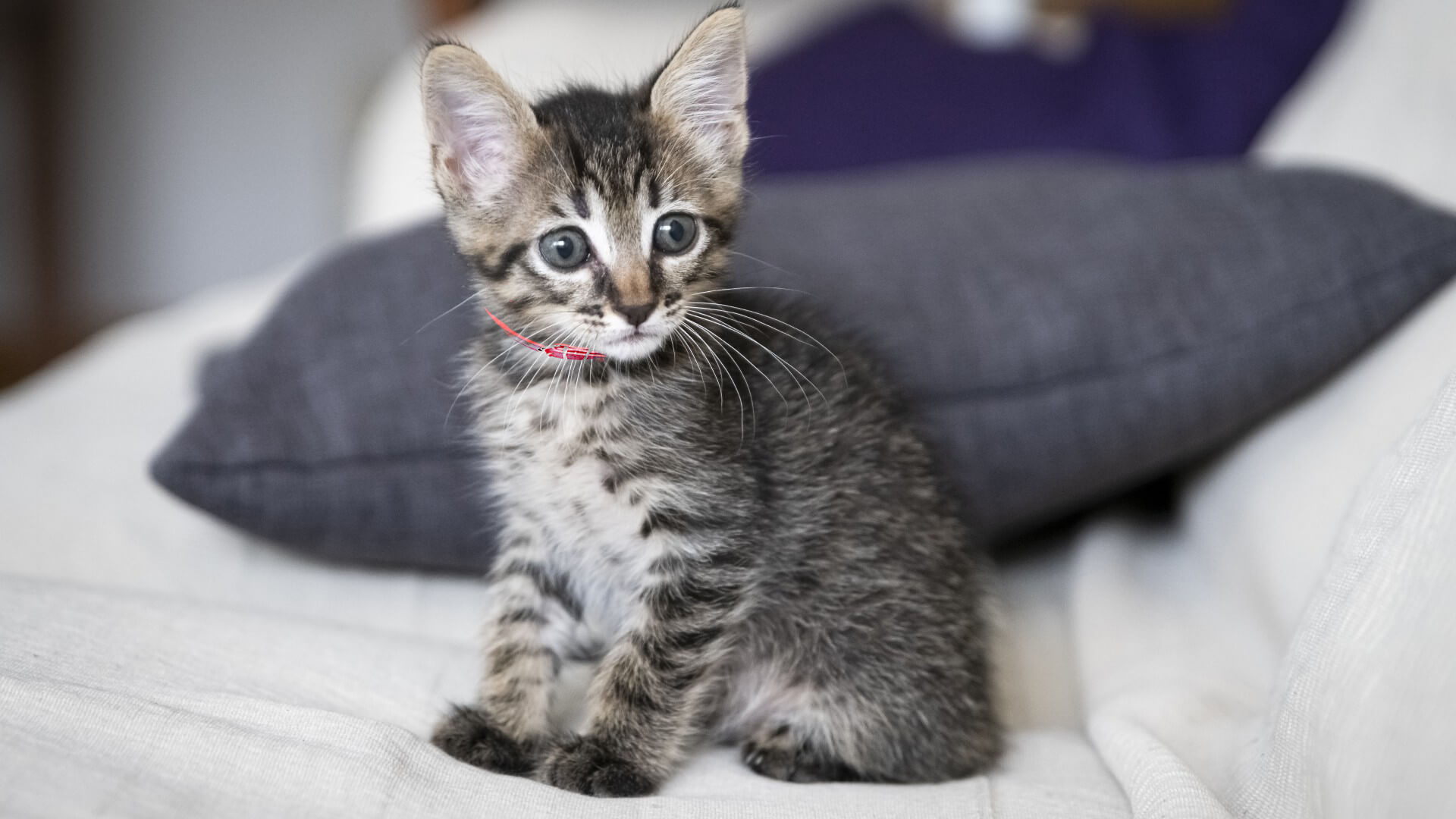Kitten
We look forward to helping you get your new kitten off to a healthy start in life. The first few months of life are very critical for good veterinary health care. This summary of our Kitten Preventive Care Program is designed to give an overview of some of the more important topics during your kitten’s first year.
Kitten
First, our veterinarian will collect a history of your kitten and talk with you about his or her lifestyle, medical conditions, and prior vaccination history (if any). Next is the Kitten Preventive Care exam, which goes from the tip of the nose to the tip of the tail. This 10-point exam includes eyes, ears, dental condition, heart, lungs, and other systems. You will upon request receive a printout of this report.
During the exam you’ll have the chance to ask any questions you may have about your pet’s health. You can ask about the aging process, dental health, breed predispositions, behavioral issues, diet, exercise, and any other concerns you might have. We know your kitten is a valuable member of your family, and we encourage you to take advantage of this opportunity to quiz the expert!
Common Problems seen with Kittens after Adoption
- Ear mites
- Upper respiratory infection
- Fleas
- Ringworm
The above diseases can be difficult to see initially. Often the disease process is very far along and can seriously compromise the kitten. A Kitten Preventive Care examination just after adoption will discover any problems and start the vaccination and deworming program at the appropriate times.
Vaccination Schedule
Typically, we recommend beginning your kitten’s vaccination program at 8 weeks of age, with a booster 4 weeks later.
In most cases, we vaccinate for the following diseases:
- Rhinotracheitis (feline herpes)
- Calicivirus
- Panleukopenia (feline distemper)
- Chlamydia
- Rabies
- Feline Leukemia (outdoor cats)
- In addition, we recommend testing all kittens for Feline Leukemia Virus (more on that later).
You will find descriptions of these diseases in your Kitten Care handouts which you will receive at your first visit. If you don’t receive your Kitten Care Kit, please ask for one.
Deworming
Kittens can pick up intestinal parasites from their environment, and from their mother before birth or after birth through lactation. For this reason – and because humans can potentially develop serious problems if exposed to immature forms of roundworm or hookworms – we routinely recommend deworming all kittens several times between the ages of 6 and 12 weeks.
FeLV / FIV Testing
Both Feline Leukemia Virus and Feline Immunodeficiency Virus are similar to HIV, the Human Immunodeficiency Virus which causes Acquired Immune Deficiency Syndrome (AIDS) in people. Neither FeLV nor FIV can infect humans and HIV cannot infect cats. Like HIV, both viruses can be transmitted from mother cats to kittens. While neither disease is curable, both are manageable with early detection. We recommend all kittens be tested for Feline Leukemia Virus within the first few months of life. We also encourage testing new adult cats introduced to a home for both Feline Leukemia Virus and Feline Immunodeficiency Virus.
All kittens who may spend even a small amount of time outdoors should be vaccinated for Feline Leukemia. The initial series requires two injections, 3-4 weeks apart followed by yearly boosters for life. Unfortunately, there is no vaccination currently available for Feline Immunodeficiency Virus, although there is currently a great deal of research into transmission, prevention, treatment, and development of a vaccine for the virus.
External Parasites
The most common external parasites we encounter are fleas, with ticks being common in late spring/ summer. Revolution and Frontline Plus are two excellent products used to kill fleas on kittens and adult cats.
Spaying / Neutering
It is very important to bring your kitten in for one of these common and safe surgical procedures – ideally before sexual maturity, around 4 to 5 months of age. The female commonly will start her first estrus cycle about 6 months of age.
For females, spaying eliminates or greatly minimizes problems with:
- Unwanted pregnancy
- Attraction of male cats during “heat” cycles
- Uterine infections
- Breast cancer, which is almost always malignant in cats.
For males, neutering eliminates or greatly minimizes problems with:
- Aggression and dominance
- Roaming
- Territorial marking with urine
- “Stud tail”, a messy and smelly condition of intact tom cats.


